Report: Great Lakes beaches, including Presque Isle, suffering from plastic pollution
When you walk along the beaches of Lake Erie, you're going to see litter and a new report found that a lot of that trash is going to be plastic.
On average, 86% of the litter collected in a given Adopt-a-Beach season is composed either partially or fully of plastic, according to a report released by the Alliance for the Great Lakes. The report is based on 20 years of data collected from more than 14,000 Adopt-a-Beach cleanups on all five Great Lakes, including Lake Erie at Presque Isle State Park.
“Plastic pollution in the Great Lakes is a threat to both human health and the environment,” Olivia Reda, author of the report and the volunteer engagement manager at the Alliance for the Great Lakes, said in a statement. “The volume of plastic found on our shorelines demonstrates the urgent need to pass federal, state and local laws that reduce plastic pollution getting into the lakes. While our dedicated volunteers are cleaning up literally tons of litter each year, more of this plastic litter enters our waters, where it breaks down into tiny particles that are found in our drinking water.”
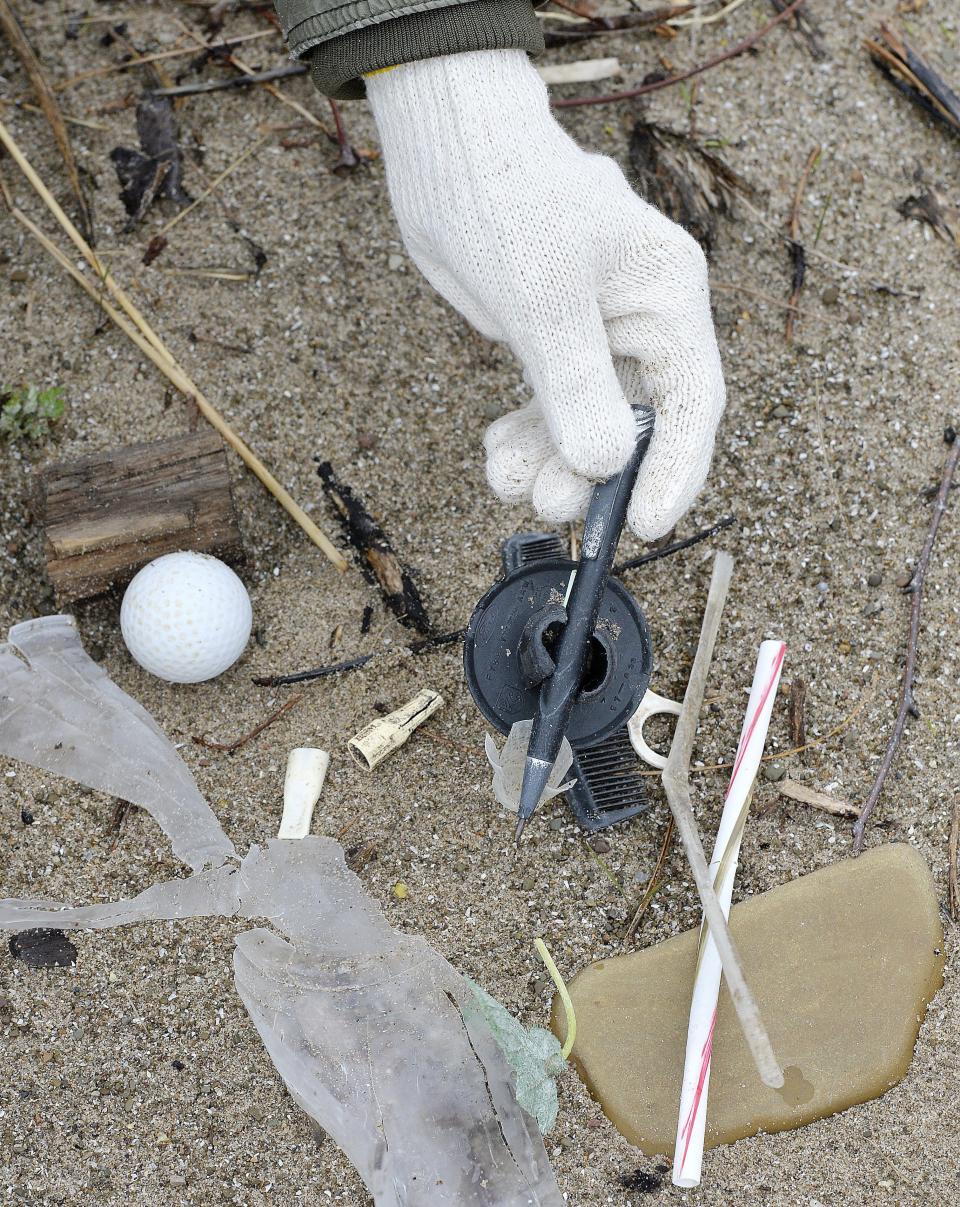
The source of much of the litter is single-use items, such as plastic bags, straws, food wrappers, takeout containers and plastic utensils, according to the report.
"This discarded plastic never really goes away. It just breaks down into smaller and smaller pieces," the report stated.
John Laskos, an environmental education specialist at Presque Isle, sees more and more plastic on the park's beaches. Most of it is 3 inches or smaller, he said, as the bottles, bags, children's toys and more have broken down.
"It doesn't seem to slow down," he said of the plastic littering Presque Isle beaches.
Clean it up: Trash a growing problem at Presque Isle State Park, where visitors leave litter behind
In addition to landing on beaches, pieces end up in the Great Lakes, which are a source of drinking water for 40 million people and home to many aquatic species. These can mistake the plastic pieces for food, causing nutrition problems. Fish can consume the pieces, which could contain chemicals or toxins, and then be eaten by people. Tiny pieces of plastic known as microplastics have been found in drinking water, beer and human blood and breast milk, according to the report.
"It even winds up inside us because we consume fish (that ate the plastic)," Laskos said.
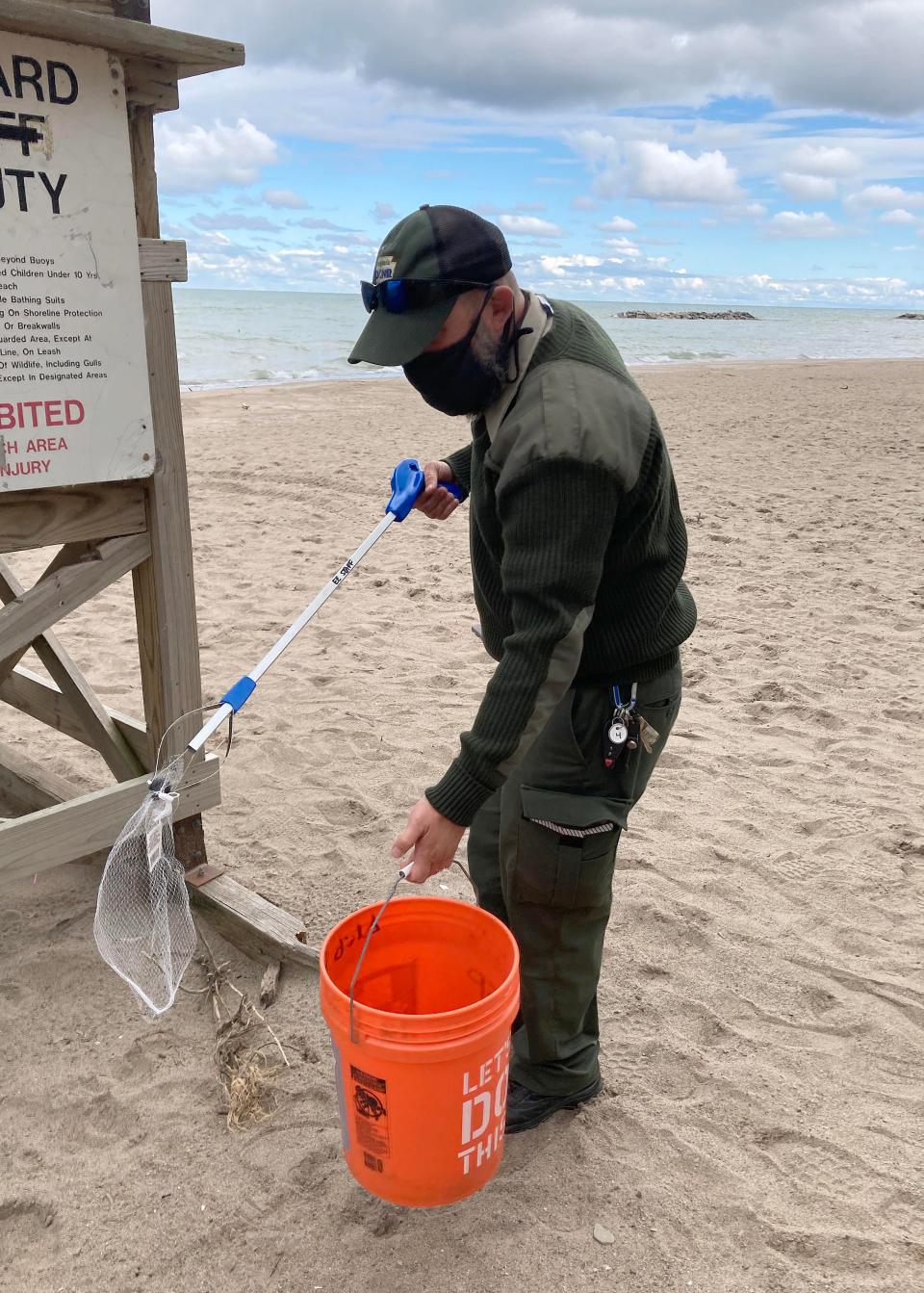
Beside the health concerns are the aesthetic ones.
"Nobody wants to come to a dirty looking beach," Laskos said.
Kinds of litter
The information compiled by the Alliance for the Great Lakes found that from 2003 through 2013, the top litter items collected at Adopt-a-Beach cleanups were cigarette butts followed by food wrappers; caps and lids; straws and stirrers; cigar tips; cups, plates, forks and knives; plastic beverage bottles; plastic bags; glass beverage bottles; and beverage cans.
Starting in 2014, the category of "tiny trash," including pieces of foam, glass and plastic measuring less than 2.5 centimeters, was added. From 2014 through 2023, the top litter items were plastic pieces, cigarette butts, foam pieces, plastic bottle caps, food wrappers, cigar tips, glass pieces, straws and stirrers, plastic beverage bottles and metal bottle caps.
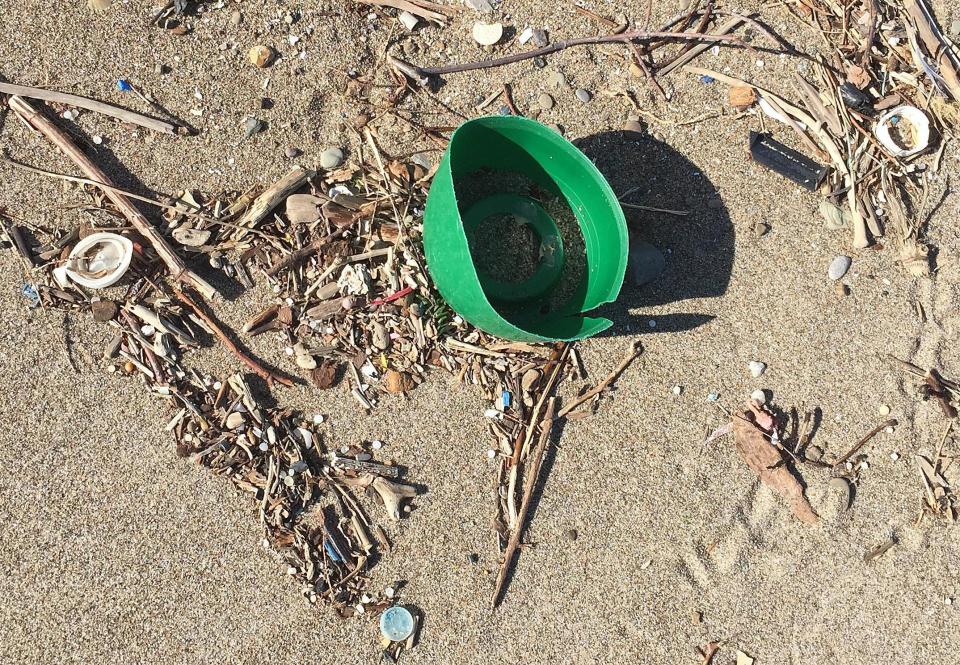
Laskos, who organizes Adopt-a-Beach cleanups on Presque Isle, said that in 2023, volunteers at the park picked up 10,545 cigarette butts; 3,500 cigar tips; 3,000 plastic bottle caps; and 8,300 pieces of plastic 3 inches or smaller. Results vary by year, he said. He shares that information with the Alliance for the Great Lakes.
From March: Spring beach walk reveals conditions at Presque Isle, helps plan for sand replenishment
How to reduce plastic pollution
The most effective way to reduce plastic pollution is to reduce the production of single-use plastic and to hold producers responsible for the waste their products generate, according to the report.
But there are other ways that individuals can help to eliminate plastic pollution. The report suggests:
Use refillable water bottles and refuse to use single-use plastic items like plastic grocery bags.
Speak up and support local, state and federal laws and policies that reduce single-use plastic and advance sustainable solutions.
Join an Adopt-a-Beach cleanup.
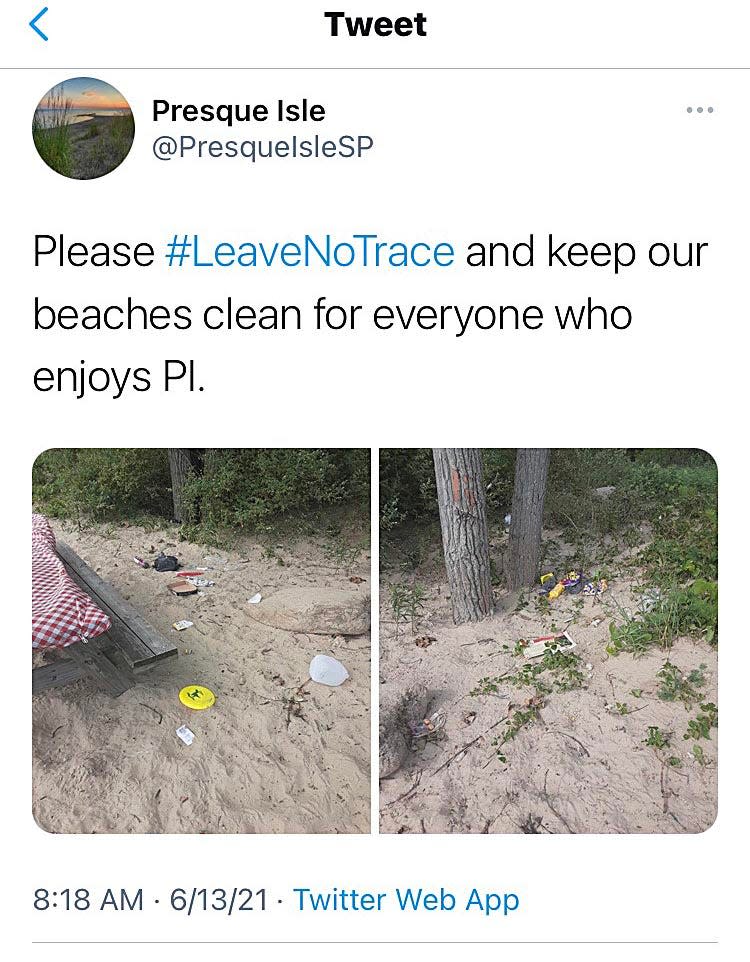
Join a cleanup
Presque Isle State Park will hold its spring cleanup April 27 from 8 a.m. to noon. Anyone can sign up from 8 to 10 a.m. at the Rotary Pavilion in the Waterworks Area. Laskos said volunteers will be given bags and gloves and directions on where to clean. Most people work about two hours, he said.
He said the cleanup volunteers set a good example for other park visitors who see the litter removal efforts.
Laskos also said, "It keeps our park looking cleaner."
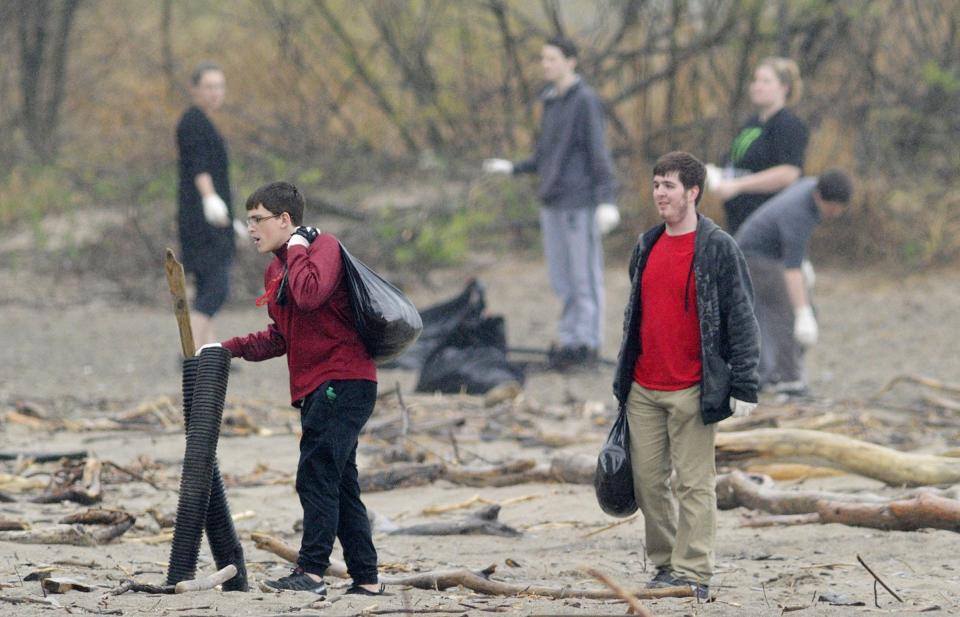
After the big spring cleanup, he organizes monthly Adopt-a-Beach cleanups on the peninsula. This year's are scheduled for May 4, June 8, July 13, Aug. 17, Sept. 21 and Oct. 19. Anyone can show up at 9 a.m. at the AAUW Pavilion near the Tom Ridge Environmental Center, 301 Peninsula Drive. Volunteers receive bags and gloves and are sent to a dozen sites along the park's 7.5 miles of shoreline, Laskos said.
He said anyone wanting more information about the cleanups can call the park office at 814-833-7424.
The International Coastal Cleanup partners with organizations and individuals around the globe to remove trash from beaches and waterways. To find an ICC cleanup near you, visit https://oceanconservancy.org/trash-free-seas/international-coastal-cleanup. For information about ICC cleanups in Erie County, call 814-451-7326 or go to https://bit.ly/eriecountycleanup.
Dana Massing can be reached at dmassing@timesnews.com.
This article originally appeared on Erie Times-News: Great Lakes, Presque Isle beaches littered by plastics, report says

